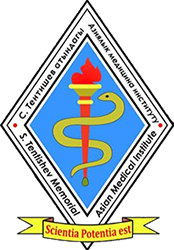Introduction
Why Earn Your MS in Healthcare Informatics at Asian Medical University?
Whether you choose to earn your degree online or on our campus, you’ll graduate prepared to use technology to streamline patient care and improve health outcomes.
As a Healthcare Informatics graduate student, you’ll study the economic, cultural, and technological aspects of healthcare IT, focusing on business and clinical operations.
Through a unique combination of real-world lessons and scholarly research, you will follow a practical course of study led by professors with extensive medical IT expertise. Our faculty possesses an in-depth and varied knowledge of the field, and you will gain skills you can immediately apply in your studies and hands-on internships.
Key Information
Campus location: Kant city, Kyrgyz Republic
Languages: English
Study Format: Blended
Duration: 2 years
Application deadline: June 15, 2024
Curriculum
In health information technology program, you will learn how to manage computer information systems and patient data in the healthcare field. No matter what program of study you choose, you will likely need to take general education courses in basic sciences and college-level mathematics in addition to HIT-focused courses. Descriptions of some of the major courses you might take include the following.
ICD Coding
You will learn about the coding conventions and guidelines related to patient care. During the course of study, you will be prepared to apply procedure coding to health records, use software appropriate for health information management, and accurately assign and sequence codes.
Health Informatics
In this course, you will receive an overview of the field of health informatics, including data standards and how to evaluate health systems. Topics of discussion might include the historical and modern perspectives of the healthcare industry’s use of information systems, trends in new practices such as telemedicine, and an exploration of how technology can improve patient care.
Reimbursement Methodology
Insurance billing and payment methods are the focus of this course. You will learn about compliance, reporting requirements, regulatory guidelines, and common reimbursement practices, and you’ll learn to validate code assignment through data quality reviews.
Health Information Management
This course looks at health care delivery systems and practitioners in relationship to the management of health care records. Your instructor may discuss various health care settings, responsibilities of health information services, and the application of information management theories from the areas of business, IT, and medicine.
